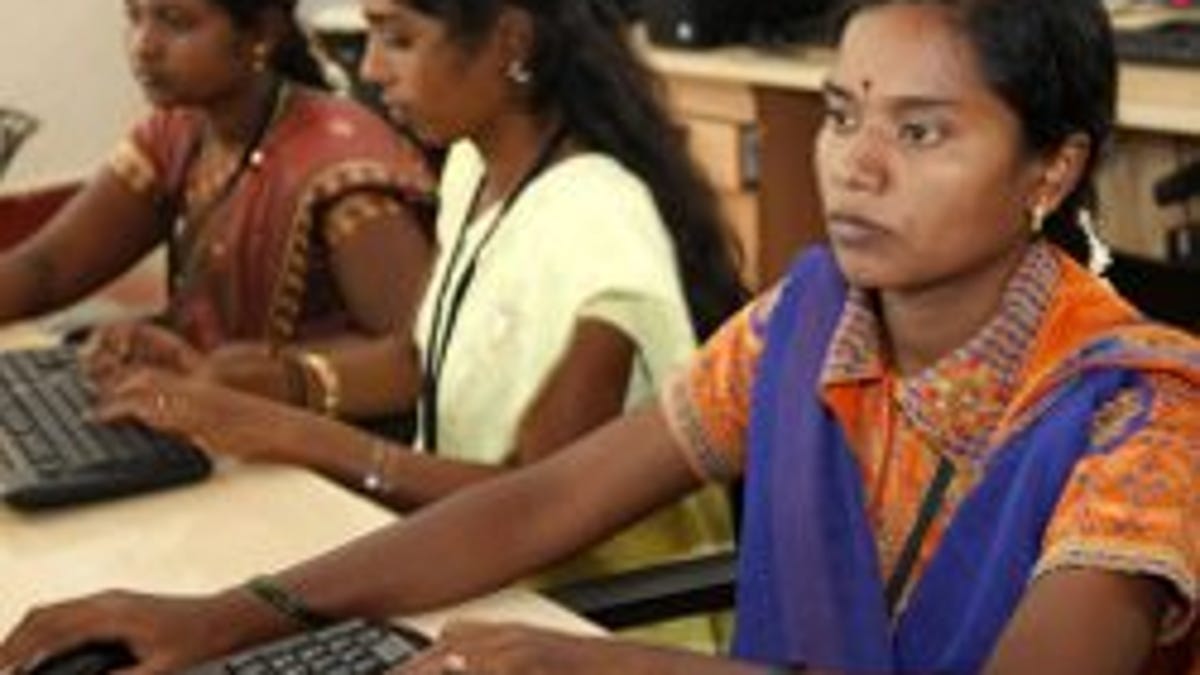How outsourcing is boosting prospects for Indian women
What started with the Indian services industry's attempts to attract talent through women-friendly policies now extends to all parts of the equality agenda.

A couple of decades ago, women graduating from one of the thousands of colleges in India had limited options. If they went with the more popular career choices of the time, they could teach in a school, work at a bank or for the government. These days, they have another professional avenue - the IT services industry.
According to official data, India's IT and BPO services industry employs some three million workers. Today about a quarter or more of these are women, says India's industry trade body Nasscom. That is up from a fifth of the workforce in 2007. A recent study, Diversity in Action by Nasscom and PricewaterhouseCoopers, suggests the number of women workers is steadily growing. That change represents a generational shift.
The IT industry has extremely high diversity in terms of gender, geography, language and socio-economic factors, says Akila Krishnakumar, CEO and India for SunGard Technology Services, a US-headquartered provider of services to the financial and education sectors. "That is because meritocracy reigns in the industry. It all boils down to talent," says Krishnakumar, who is among the very few C-level women executives in the Indian services field.
The competition for talent in the IT industry has smoothed out many of the inequalities, making it more diverse and inclusive than any other in India.
Foremost is the gender balance. Thanks to women-friendly policies, including escorts to the doorstep on nightshifts, generous maternity benefits and 24/7 childcare, the gender imbalance in the industry is slowly being evened out.
More middle-class Indian parents, who wield enormous power over their children's career choices, are becoming comfortable with their daughters working late and being away on business.
But diversity in the industry still has its challenges. While there are plenty of women entering the workforce, there is a pronounced lack of women in leadership or boardroom roles. Sangita Singh, a senior vice president, healthcare and life sciences at Wipro, is among the select few who have climbed up the ladder in the industry. She believes change is round the corner.
First, Singh says, there are a lot more women at the entry level in the industry. Secondly, many women are rising in functional roles today. Among the managers who report to her, Singh counts eight women out of a total of 15. "It's only a matter of time," she says.
In five or six years, more women will reach the top in business roles, she predicts. "In a few years, the IT industry will start looking like India's banking industry," Singh says, referring to the domination of India's leading banks by sari-clad women CEOs.
Indian companies have imported and formulated some of the best practices in HR. Their flat structures and informal work culture is quite a departure from the ambiance at India's family-run or old- economy companies. But inclusivity in the full sense of word, encompassing generational diversity and lesbian, gay, bisexual and transgender workers, is still not visible in workplaces.
Close to six percent of India's population has some form of disability but fewer than three in 100 are employed by the organised sector, says Ajay Kela President and CEO of the Wadhwani Foundation. The foundation is a not-for-profit set up by Romesh Wadhwani, founder of IT services company Symphony Technology Group. It funds programmes to empower and employ people with disabilities and special challenges.
"We are making progress through initiatives such as those by the Wadhwani Foundation and Nasscom, but the outcomes are still far from mainstream," admits Kela.
A gay worker at a multinational technology company told TechRepublic that there is more acceptance of diversity in the workplace than even a decade ago. For instance, he said, people have a more nuanced understanding of labels attached to sexual orientation. But diversity as a corporate agenda is largely focused on bringing women into the workplace, he said.
However, one remarkable aspect of India's young industry has gone largely unsung. India's infamous caste and class systems have been upended by the IT industry. With the migration from small towns to larger cities, many Indians no longer feel categorised by the caste system or shackled to it in an industry where merit rules.
The industry is dominated by a young workforce - in many large companies workers are aged on average in the early thirties. "Talent issues have diminished all biases, equal opportunity is the reality," says Krishnakumar of SunGard.